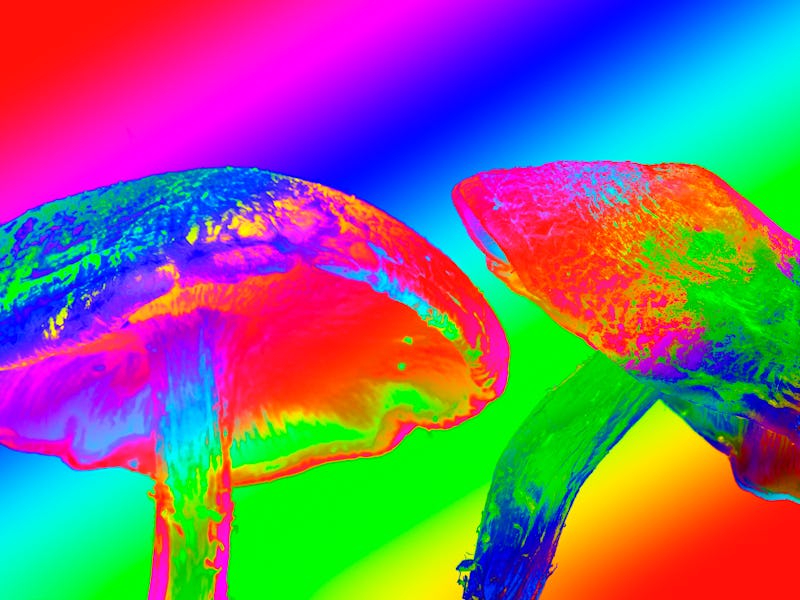Magic mushrooms might rebalance the brain — study
A new model can inform interventions for neuropsychiatric disorders.

The exact way that psilocybin, the hallucinogen chemical found in magic mushrooms, works on the brain is poorly understood. However, recent research suggests it can actually change the way brain networks function — acting as a sort-of reset.
In a study published in April, researchers created a realistic whole-brain model, also known as a "whole-brain connectome" — basically, a picture of all the neurons ticking away in the brain and the different neurotransmitters that they are constantly lugging around. They used this to model how the human brain looks on psilocybin.
Inverse is counting down the 20 stories redefining 'human' from 2020. This is number 5. See the full list here.
The team incorporated images of the brains of the study’s nine participants, who had been injected with psilocybin (or a saline placebo).
Using the model allowed the scientists to study exactly how psilocybin affects the brain. The team saw that, when psilocybin was introduced, it disrupted networks in the brain — they became “destabilized” — and forced the neurotransmitters to find new pathways between brain cells.
"We wanted to investigate the role of neurotransmission in dynamically changing the activity in whole-brain networks — and how this changes neurotransmitter release in return," Morten Kringlebach, the study's first author and a senior research fellow at the University of Oxford, told Inverse.
This study hints that psilocybin works its magic by “rebalancing” the brain. Psilocybin’s most promising skill, its effectiveness in alleviating treatment-resistant depression, is thought to be by virtue of the activation of serotonin 2A (5-HT2A) receptors.
The promise of psilocybin, and psychedelic drugs writ large, as powerful potential treatments for chronic mental illnesses such as depression, anxiety, or addiction, seems to grow only more realistic as time passes and research sophisticates. Figuring out how exactly they work on the brain will be crucial to harnessing their powers.
"This new model will give us the much needed, causal tools for potentially designing new interventions to alleviate human suffering in neuropsychiatric disorders," Kringlebach told Inverse.
Inverse is counting down the 20 stories redefining 'human' from 2020. This is number 5. Read the original story here.
This article was originally published on